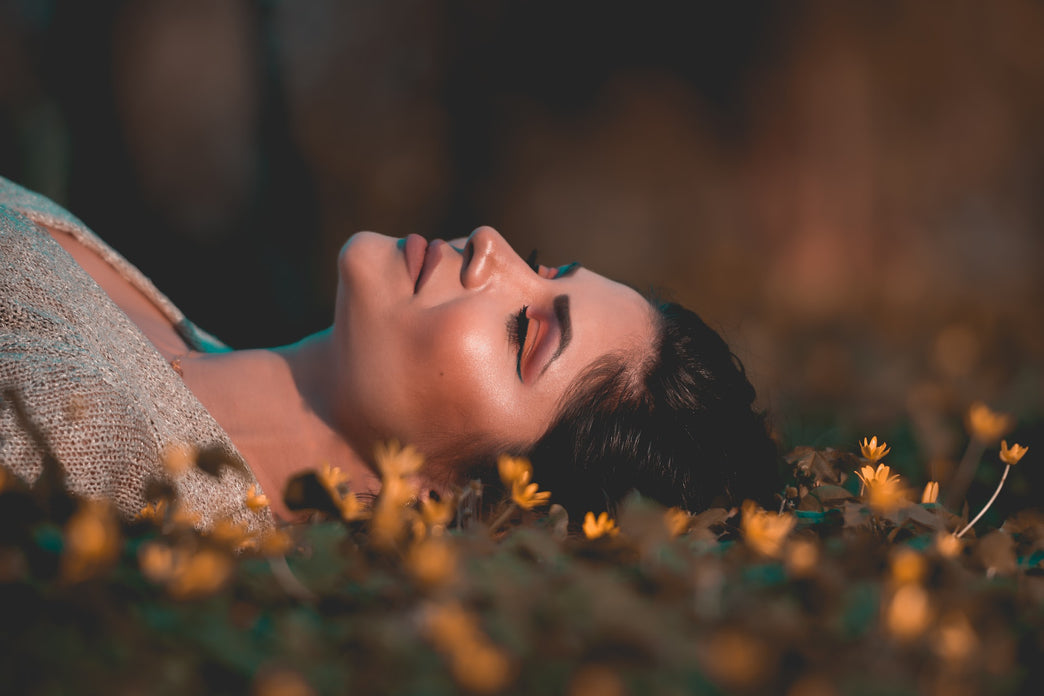Are you looking for a night of delightfully good sleep?
How about every night?
Impossible! You say. Perhaps.
But what if you could move towards more hours of blissful sleep, even just a little? What would that mean to you?
We think it could mean a great deal.
This is why we have created a short list of beautiful herbs to support your sleep (and one thing you should avoid!) to share with you:
Beautiful Sleep Supporting Herbs That We Love
1. Lavender
When it comes to sleep, you can't go past lavender!
Lavender tea is believed to improve sleep quality due to its calming effects, and scientific evidence supports this claim. Studies have found that drinking lavender tea before bedtime can improve sleep quality in patients with insomnia and reduce anxiety in patients undergoing hemodialysis treatment. Incorporating lavender tea into a bedtime routine may be a natural and effective way to promote better sleep.
2. Valerian Root
If you can get past the strange smell, valerian root is a dream for sleep! Quite literally.
Valerian root tea is a natural sleep aid. Studies have found that valerian root can improve sleep quality and reduce the time it takes to fall asleep. For example, a study published in the journal Sleep Medicine found that valerian root extract improved subjective sleep quality and reduced sleep latency in patients with insomnia.
3. Chamomile
No surprises here! It's just a pity it's so boring.
Chamomile tea has been traditionally used as a natural remedy to promote sleep, and scientific research supports its effectiveness. Studies have found that chamomile tea can improve sleep quality and reduce anxiety. For example, a study published in the Journal of Clinical Psychopharmacology found that chamomile extract reduced anxiety and improved sleep quality in patients with generalized anxiety disorder.
4. Jasmine
Well, hello there, jasmine!
Jasmine tea is a fragrant and popular tea that may have sleep-promoting properties, though scientific evidence on its effectiveness is limited. One study published in the European Journal of Applied Physiology found that inhaling the aroma of jasmine tea improved sleep quality and increased alertness the next day in a small group of healthy adults. However, further research is needed to determine whether drinking jasmine tea can improve sleep quality.
One Thing You Should Avoid
1. Tea!
Unfortunately tea is no friend to sleep.
We're talking proper tea, not herbal infusions. Green tea, white tea, black tea, oolong tea. The real stuff!
As tea contains caffeine, it can interfere with sleep. Caffeine can increase alertness and disrupt the sleep-wake cycle. Even decaffeinated teas may contain trace amounts of caffeine that can still have a stimulating effect. How sad.
Best Tea for Sleep
Well done, Sherlock, you've noticed our faux pas.
We've just told you to avoid tea if you want good sleep. How can we recommend the best tea for sleep?
Because you already know, what we're about to recommend is not a tea at all! We're talking about the best herbal infusion for sleep!
Ok, here it is:
Filled with delightfully fresh Australian-grown lavender, valerian root, jasmine, even some lemongrass and licorice root for sweetness.
It's our favourite Lavender Moon. Designed for nights of delightful sleep.
We recommend you take it for at least two weeks to start to really experience the benefits.
"I have been drinking Tielka's Lavender Moon tea for almost a year now. My sleep has improved quite a bit, and I love the ritual of a warm cup of tea before bed that actually helps me sleep. Shipping is always super quick, and the quality of the tea is second to none."
Lan C. Verified Buyer



